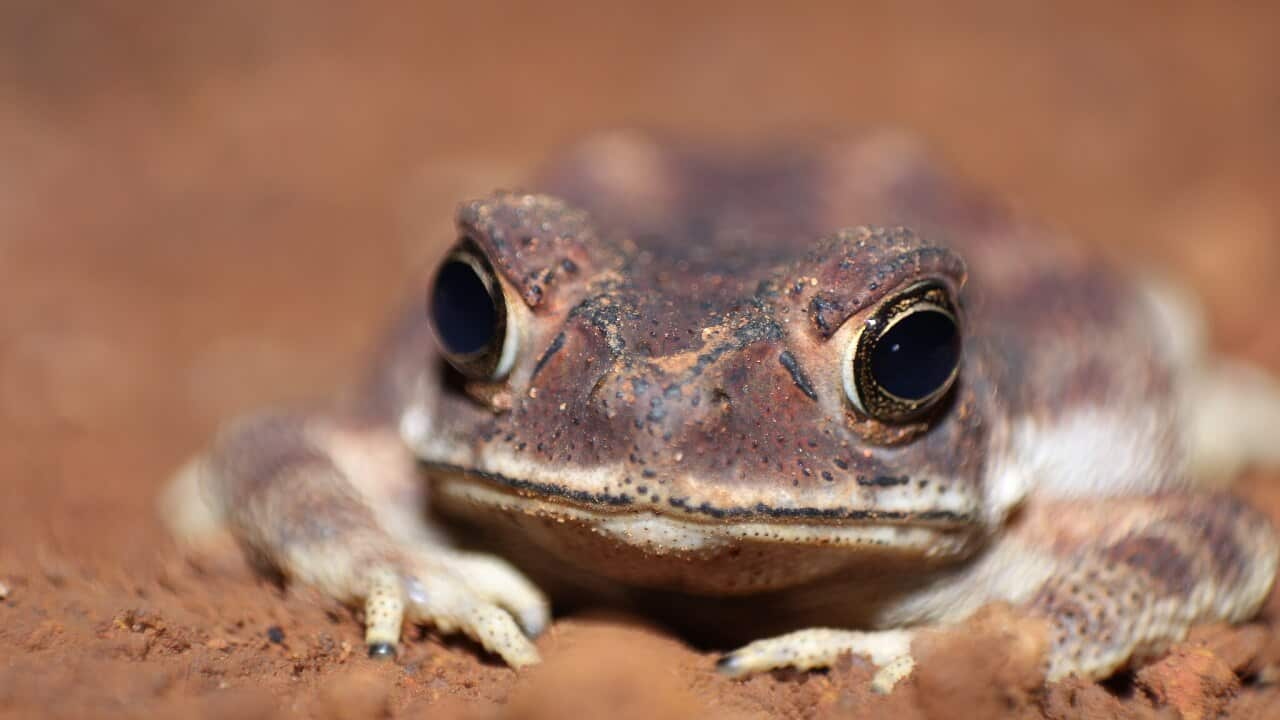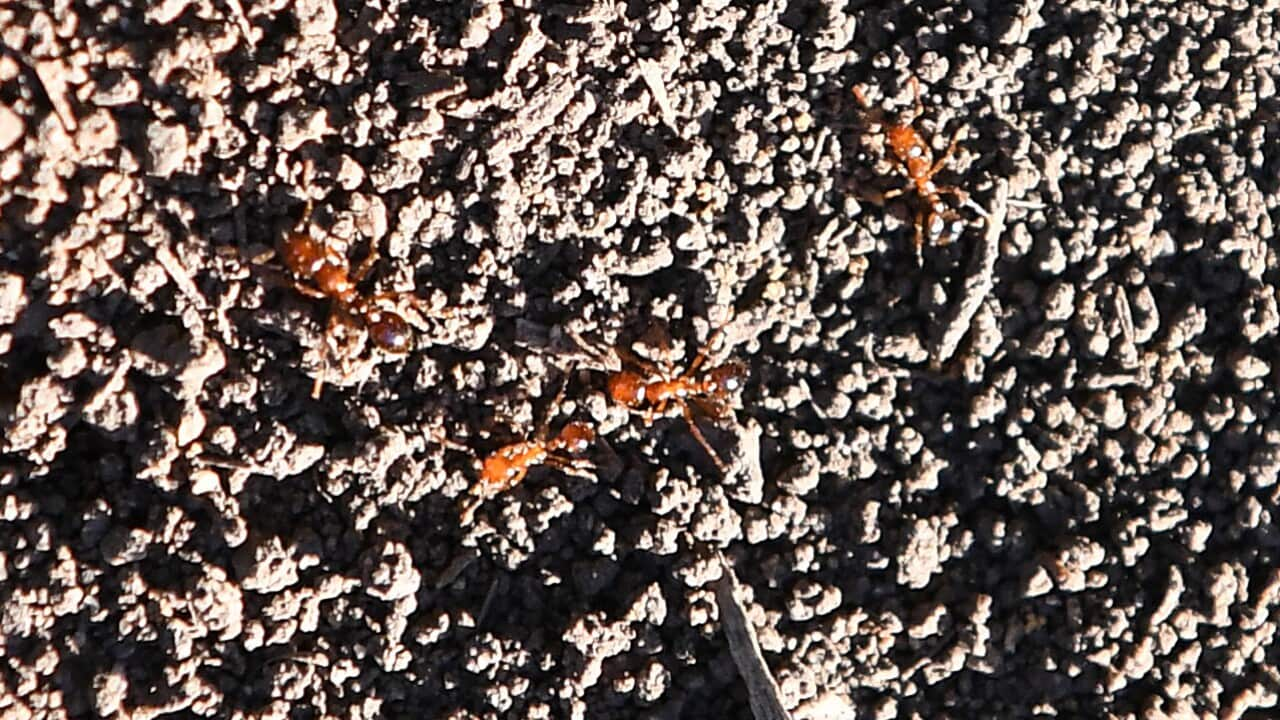Key Points
- The poisonous Asian black-spined toad has been spotted in Victoria.
- Similar to the cane toad, the species is native to China, southern Asia, India, Pakistan, Nepal and Indonesia.
- The animal is considered a biosecurity risk under legislation.
A poisonous Asian toad poses a serious threat to wildlife and pets after it was found thousands of kilometres away from home in Victoria.
A resident of Melbourne's southeast was walking along the Djerring Trail near Huntingdale train station on Boxing Day afternoon when they found what they thought was a cane toad and scooped it up in a cup.
They reported their find to Agriculture Victoria, which has since identified the animal as an Asian black-spined toad - an amphibian that produces a poisonous milky substance.
Wildlife or pets could become seriously ill or die if they tried to eat the toads, which can breed up to two times a year and produce up to 40,000 eggs per cycle, Agriculture Victoria said.
Eating Asian black-spined toad skin or eggs could also cause serious illness or death.
Asian black-spined toad not normally found in wild
Authorities were trying to figure out how the type of toad - abundant and widespread in southeast Asia including in Bali, Thailand and Papua New Guinea - came to be in Melbourne.
"They do not naturally occur in the wild within Australia, however, the species is frequently intercepted at Australian borders in shipping containers and in personal luggage as stowaways," Agriculture Victoria biosecurity manager Adam Kay said.
"They are poisonous, and compete with native species for food and habitat, with the potential to cause environmental impacts like those of the cane toad in Queensland.
"This is a serious biosecurity threat, and we are seeking help from Huntingdale area residents and business owners who may have information on how this toad came to be in the community."
The toad was the 18th of its kind found reported to Victorian authorities since 1999.
Kay urged Melburnians to report any further sightings of the amphibians to Agriculture Victoria, as Asian black-spined toads were classified as pests under the state's legislation.
How can you identify an Asian black-spined toad?

A black-spined toad in Sanur, Bali, Indonesia. Source: Getty / Auscape/Universal Images Group
The toads' milky toxin has a pungent odour that could cause humans' eyes and noses to itch, and the animal is identifiable by its raised, black and bony ridges over its eyes, which meet at the nose.
The toads also have a distinct pointy snout; a prominent black rim on the upper lip; black-tipped and hooked toes; visible ear drums; dry and rough skin; short hind limbs with pimple-like warts on the feet and toes; and white, cream or pale brown undersides with black-brown spots.
The toad's skin colour could vary but was most commonly pale yellow-brown with raised, black and warty spots.
The toad found in Melbourne was in poor condition and died before it was disposed of appropriately to minimise biosecurity risks, authorities said.











